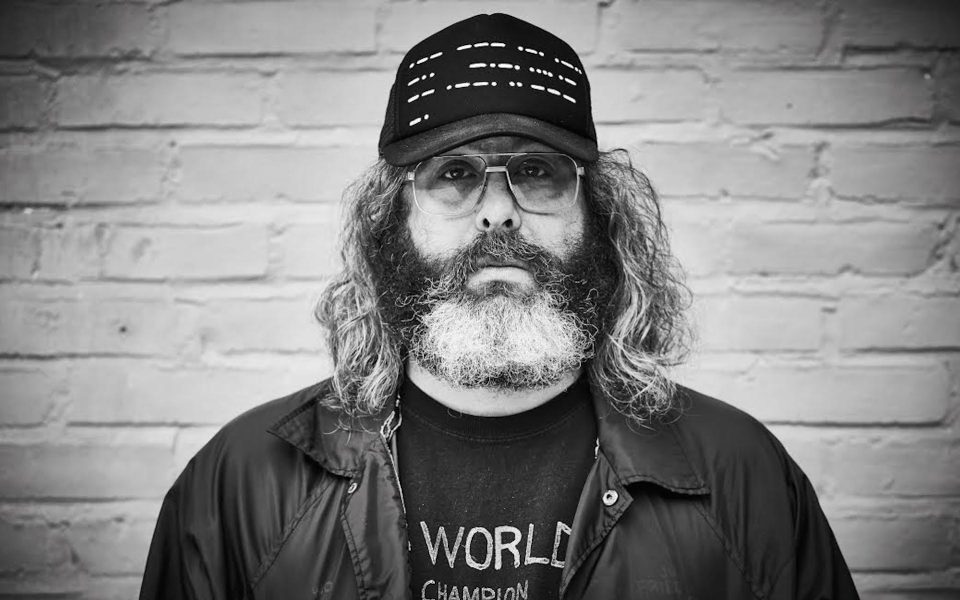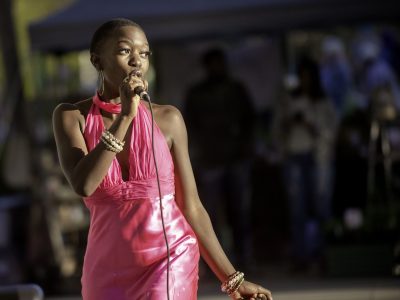Judah Friedlander is best known for his character Frank
Rossitano on the NBC series “30 Rock,” marked by his trucker hats, oversize
glasses and unkempt appearance. But he got his first big role in a Dave
Matthews video (the hugs guy) and played a huge role in American Splendor, bringing real-life character Toby Radloff to the
big screen. He’s currently touring the country with his stand-up act that
relies heavily on satire and political material. He’s got a special on Netflix,
America is the Greatest Country in the United States, and he’ll be at
the Idiot Box on Saturday.
Frank Rossitano in “30 Rock” looks like you, as opposed to some of your other roles. Are you like Frank?
Well, most of my roles are a variation of myself. Frank looks like me, but doesn’t really act like me. It looks like me, but people think it’s how I am. But no, that was acting. Even right now, I look quite a bit different than I did on “30 Rock.” My beard is quite long, grayed. A lot of people, if they haven’t seen my Netflix special, they might not recognize me.
Your role in American Splendor, playing autistic real-life character Toby Radloff, was more of an acting gig. Was that a challenging transformation?
That was a hell of a lot of work. The set was fine and everything, but it was difficult, mentally draining work. But it turned out well. There was so much pressure — I’m playing someone who is a real person, and the real person is also in the movie. In one scene the person I’m playing was in the scene with me. It was a lot of stress to get it as right as you can. I remember before we filmed that scene, me and [Paul] Giamatti were sitting around saying, “I don’t know if this is gonna work, man.”
I don’t know if that’s happened before: a biopic with the actors and real characters in the film together. It’s one of the strongest points of the whole movie, certainly a gamble and that’s what I liked about it.
How is acting different from standup?
I like stand-up better. I’ve been doing it over 30 years. In New York City, most of the sets are 15 minutes, but I usually do around four a night. I do about 20 sets a week.
If you’re a true stand-up, you’re the writer, performer, director — everything. You’re a one-person show. With film, you have an idea, you write it, you find the cast, film it, edit it. Six months later you show it to people and find out if it’s any good. Stand-up, you know right away. That’s the immediacy of stand-up.
And as far as being an auteur, it’s all my work.
Do you script your performances or mostly improvise?
Most comics probably do script; I don’t. My Netflix special, I made that myself, not through Netflix. I filmed it, wrote it, edited it, directed it, did the photography — it’s in black-and-white, with a handheld camera. It’s got an indie-jazz, punk-rock kind of feel to it. My act is a mix of crowd work and material. It’s satire on the political and social structure of the United States. American exceptionalism. My new stuff is similar to that.
Some material that would have worked even a few years ago now can offend people. Is comedy getting tougher?
It’s tough from a few different angles. But it’s more nuanced than people are thinking or saying. Most people aren’t honest in how they discuss it. The PC movement is often correct.However, sometimes they do overreach and are not correct.
For example, [they say,] “You shouldn’t be making fun of this group.” But sometimes there might be a serious subject, mass incarceration. Some people might get upset by you saying the words “mass incarceration.” “You’re not allowed to joke about that.” But I have a joke about mass incarceration that’s in support of the people who are incarcerated. I can’t do a joke about the people who are oppressed.
Other comics complain, but some of them are being dishonest. I think they really don’t give a shit about free speech; they just want to do bigoted stuff, they just want to do racist material. They don’t want any criticism. And some are using free speech as a mask to spew bigotry.
In some ways, comedy is no longer at the forefront of free speech. The comedy business has grown so much in the last 30 years, has become much more corporate, more of a business, and I think the majority want to be famous more than they want to be a great comic. If you’re someone who fits into that category, you’re gonna toe the corporate line and do whatever you think they want. I don’t think there is a lot of rebellion in stand-up these days. Certainly not in what you see in the mainstream media.
I think most comics don’t talk about the news, they don’t know that much about it, even on TV. It goes back to the corporate structure. Late-night hosts goofing on Trump. There’s a reason he got elected. And they don’t want to challenge the status quo because they are the status quo. They think that before Trump got elected, the country was perfect.
Judah Friedlander performs at the Idiot Box in Greensboro on Saturday, with shows at 7:30 and 9:35 p.m.
Join the First Amendment Society, a membership that goes directly to funding TCB‘s newsroom.
We believe that reporting can save the world.
The TCB First Amendment Society recognizes the vital role of a free, unfettered press with a bundling of local experiences designed to build community, and unique engagements with our newsroom that will help you understand, and shape, local journalism’s critical role in uplifting the people in our cities.
All revenue goes directly into the newsroom as reporters’ salaries and freelance commissions.





Leave a Reply